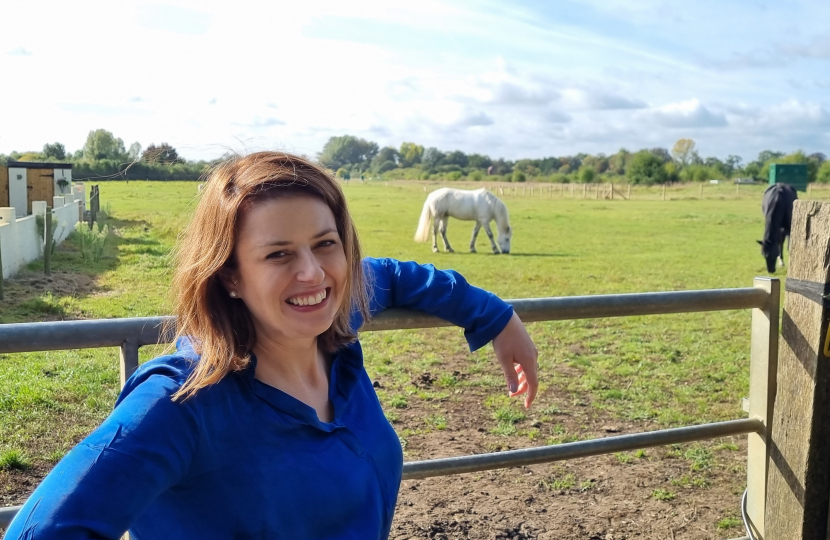
Joy Morrissey MP has called for stronger protections for Green Belt land in the ongoing consultation on delivering the Environment Act.
Environmental targets, a key commitment in the Environment Act, are designed to deliver the government’s vision of leaving the environment in a better state than it was found, and to drive forward ambitious environmental improvements that protect and enhance our natural world.
The targets form part of the government’s response to the clear scientific case, and growing public demand, for a step-change in environmental protection. Environmental targets will require action across the economy and will provide long-term certainty to businesses and society. This will stimulate innovation and economic growth and will create and support green jobs across the country.
I am calling for greater protections for Green Belt land in the consultation on delivering the Environment Act. Ensuring we protect our green spaces is an essential part of delivering on the objectives of this landmark legislation.
Summary of Environment Act Consultation submission from Joy Morrissey MP
Suite of biodiversity targets
There is little point creating and restoring wildlife rich habitats, while those habitats continue to be destroyed by over development. Particularly in areas like the Metropolitan Green Belt, remaining green spaces need to be preserved to slow the damage that is being done. In my own area , the highly successful reintroduction of Red Kites will be put at risk if the land they require continues to disappear under housing pressures. This must involve significant further protection of land designated for agricultural use, which is key to maintaining biodiversity, but which is often seen as an easy option for development.
Habitat
I agree with the broad principle of these measures but feel that this needs to be tied to a target to stop the erasure of habitat by inappropriate development. This is particularly true in the Metropolitan Green Belt, where the few green spaces providing habitat are already under extreme pressure. As urban centres sprawl, they create wildlife dead zones, with little to no habitat, wiping out animal populations as they expand. In order to stop these vast dead zones from forming, it is essential that proper protection is given to the islands of biodiversity which have managed to survive. I would recommend that green spaces in Green Belt specifically, should be added to this list, as should agricultural land in semi-rural areas.
Nutrient Pollution
While the problem may be worse in some areas than others, it is imperative that these measures do not adversely impact farmers. Realistically, farming is the only sustainable way of maintaining vast swathes of land in the UK, so farmers must be supported at every stage of this process. In order to reach this goal, the needs of maintaining the farming business model must be at the heart of policy development.
Nutrient pollution from wastewater
Water companies must invest in improving infrastructure to address this and other problems. It must be made clear that their whole focus, for the next few decades, must be on improving the networks they manage.


